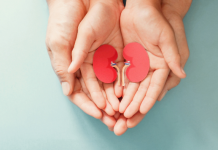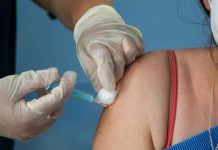The full extent of the challenges Greater Manchester faces with alcohol and drugs have been explored in a new report.
And the authors are calling on decision makers to ensure investment in treatment and support for those facing addiction continues to be a priority despite the health services funding challenges created by COVID-19.
With the job insecurity, stress and anxiety of lockdown, drug and alcohol issues are likely to have escalated. Providing support for people facing issues with substances is more important than ever.
Martin Preston, of Hale, is in recovery from alcohol and drug dependency himself and is founder and CEO of purpose built residential addiction treatment clinic, Delamere, in Cuddington, Cheshire.
He said: “It’s easy for addiction treatment investment to be quietly cut because compassion for those addicted to drink and drugs remains low.
“It’s still a prevalent belief in society that people facing addiction issues are responsible for their own downfall and not as deserving of help as people facing other health issues.
“Many people also see addiction as something that only affects ‘other’ people. In reality, addiction affects everyone.”
Alcohol is recognised as the fifth biggest risk factor for death, ill health and disability in the UK, by Public Health England. For 15-49 year olds, it is the biggest risk factor.
The rate of alcohol related deaths in Manchester is 57.8 alcohol per 100,000 population, according to Public Health England. That’s much higher than the rate of 46.5 for England as a whole.
Between March 1 and April 17 2020 there were 36.2 deaths involving COVID-19 per 100,000 population in England and Wales, according to the Office for National Statistics.
Delamere has created a detailed report on drug and alcohol addiction and treatment in Manchester that shows it already has:
- the highest rates of alcohol related cancer in the country
- lost 799 years of life per 100,000 population in 2018 due to alcohol related conditions (the most recent annual count)
- a drugs death rate that is 82% higher than national average
- ranked as below average on all key Public Health England indicators for alcohol harm and alcohol related deaths (appearing below the 50th percentile line in all cases)
The city does however have a comparatively good record on successful completion of alcohol treatment at 42.5% compared with a national average of 37.6%.
Delamere has also taken a look at the specific drug and alcohol challenges faced by the rest of the regions of Greater Manchester.
Mr Preston said: “With The Greater Manchester Drug and Alcohol Strategy there have been big pushes to improve things and that must continue, even now there is bigger pressure on budgets than ever. The long term costs of not providing the right support are far greater than the price of early and appropriately intensive help and intervention.”
Delamere’s report states that Manchester was also recently identified as one of major hubs for county lines drugs gangs, in a national study by Professor Dame Carol Black.
The same study, published in February just before the national COVID-19 lockdown began, concluded that the entire country is already suffering under investment in addiction treatment services.
Dame Carol Black said: “The total cost to society of illegal drugs is around £20 billion per year, but only £600 million is spent on treatment and prevention. So the amount of unmet need is growing, some treatment services are disappearing, and the treatment workforce is declining in number and quality.”
She said more funding for treatment services was vital.
The regions of Greater Manchester each face challenges in regard to drink and drugs issues.
According to Public Health England figures:
Bolton is:
- ranked second worst in the country for drug treatment successful completion rates (for non opiate users), at 20%.
- fourth worst in the country for alcohol treatment successful completion rate, at 23%.
Bury is:
- dealing with the 14th highest rate of deaths from drug misuse in the country, at 8.7 per 100,000 population, which is almost double that of the national average rate of 4.5. It’s the fourth worst figure in the North West region, topped only by Blackpool, Liverpool and Blackburn with Darwen.
Oldham has:
- significantly higher than average hospital admissions for alcohol related conditions with 2,944 per 100,000 population, compared to an England wide figure of 2,367.
- the 4th worst rate of female mortality from chronic liver disease in England at 17.4 per 100,000 population. The England average is less than half of that at 8.5.
- The fifth worst rate in England of successful completion of drug treatment (for non-opiate users) at 20.5%. The national average being 34.4%.
Rochdale has:
- the second worst rate of successful completion of alcohol treatment in the North West, at 27.4%. Only Bolton’s was worse.
- the second worst rate of successful completion of drug treatment for opiate users in the North West, at 3.4%. Again Bolton was worse. Rochdale is 9th worst in England on this measure.
Salford has:
- the country’s third highest rate of alcohol related hospital admissions, with 3,693 per 100,000 population – a figure that is more than 50% higher than the national average of 2,367.
In Stockport there were:
- 33% more hospital admissions for alcohol specific conditions than the national average, at 830 per 100,000 population compared to an average of 626 for England.
Tameside has:
- the 8th worst alcohol-related mortality rate in England
Trafford has:
- the 8th highest rate in the North West of hospital admission episodes for alcohol specific conditions in under 18s, at 51 per 100,000 population compared with 31.6 across England.
In Wigan:
- 1,109 years of life were lost per 100,000 population due to alcohol related conditions in 2018 (the most recent annual count). That’s the highest number of the entire North West barring Blackpool. And the fifth highest in all of the country.







